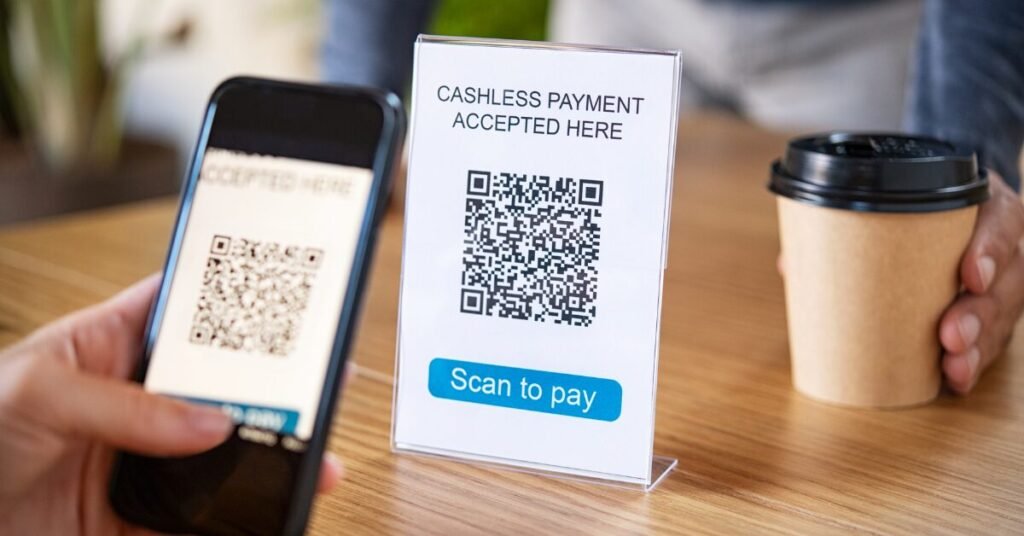
Mumbai, March 20, 2025 —
India’s digital economy has become the envy of the world. From kirana shops in rural villages to modern cafes in metro cities, UPI payments, QR codes, and mobile wallets have made cash nearly obsolete. But while convenience is at an all-time high, so is digital payment fraud.
The rapid rise of online transactions has opened the floodgates to scammers who now prey on trust, ignorance, and technology loopholes. What was once hailed as the safest way to pay is now being questioned by users who’ve fallen victim to well-crafted traps.
The Hidden Cost of Going Cashless
India logged over 120 billion digital transactions in 2024 — a record-breaking achievement. But with that also came an alarming spike in cyber fraud. Fraudsters are now using AI-generated voices, spoofed URLs, and even deepfake customer care videos to trick users.
Scams aren’t just increasing in numbers — they’re becoming smarter, faster, and harder to detect.
Meet the New-Age Digital Thieves
Unlike the old-school hackers of the past, today’s digital criminals operate like startups — organised, creative, and ruthlessly efficient.
Here’s how they operate in 2025:
- Impersonation Calls with AI Voices: Using generative AI, scammers mimic bank officials or app representatives.
- KYC Suspension Scare: Fake SMS urging users to “verify” details or risk account suspension.
- QR Code Switch Tricks: Scammers replace merchant QR codes with fake ones to receive payments instead.
- Payment App Clone Apps: Fraudsters create lookalike apps of PhonePe, Paytm, and Google Pay to capture user credentials.
- One Rupee Test Scam: A new scam where fraudsters send ₹1 and request reversal, tricking users into authorizing large transfers.
Real People. Real Losses.
The data may shock you, but the stories break your heart.
Vaibhav Rane, a delivery partner from Thane, lost ₹22,000 after scanning what he thought was a refund QR code sent by a customer. “It had the exact logo and message tone of the app. I thought it was real,” he said, devastated.
Neha Verma, a homemaker in Delhi, shared her story of being conned through a fake Paytm KYC update message. “The page looked so genuine. They even had a chat support feature — all fake.”
These are just two of thousands of cases being reported daily on cybercrime.gov.in.
RBI Steps In, But Users Need to Step Up Too
The Reserve Bank of India has warned banks and fintech apps to strengthen their fraud detection systems. Guidelines have been issued to:
- Ensure multi-layer KYC authentication
- Block apps that don’t meet cybersecurity protocols
- Introduce real-time fraud alerts
- Enforce in-app education banners about ongoing scams
But regulators alone can’t plug the gaps. A digitally aware user base is the strongest line of defense.
7 Golden Rules to Outsmart UPI Fraudsters
- Never share UPI PIN or OTP, even with someone claiming to be a bank official.
- Never scan a QR code to receive money. You only receive payments via phone number or UPI ID.
- Always download apps from the official Play Store or App Store.
- Avoid unknown links in SMS or WhatsApp, especially those asking for verification.
- Set transaction limits for UPI apps.
- Double-check customer support numbers on official websites.
- Report scams to the Cybercrime Helpline (1930) or cybercrime.gov.in.
The Bigger Picture: Trust in Digital India
India’s fintech journey has been nothing short of revolutionary. With financial inclusion, speed, and ease, we’ve created a cashless ecosystem envied globally.
But trust is fragile. Every scam not only robs someone of their money — it chips away at the very foundation of Digital India.
If we don’t act fast, India’s digital goldmine could turn into a cyber minefield.
Final Thought: India’s Digital Future Deserves Digital Responsibility
As India continues to move toward a fully digital economy, cybersecurity must be as much a priority as innovation. We can’t let a few tech-savvy criminals derail the nation’s progress.
Being aware isn’t an option anymore — it’s a necessity.
Every scan, every click, every share must be made with care. Because in this new economy, your device is your wallet — and your awareness is your vault.
Stay tuned ibizznews for more updates.




